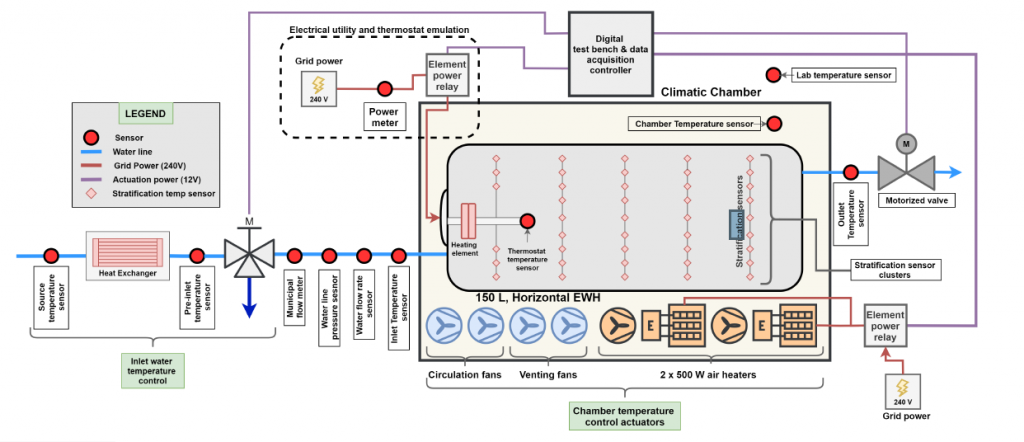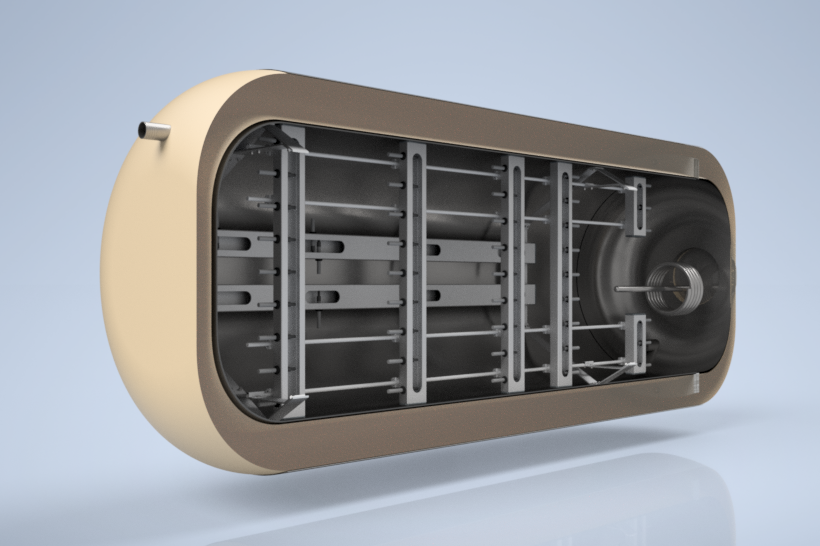It is no secret that electrical energy is a scarce commodity, especially in many developing countries that struggle to meet the ever-increasing energy demands. In Sub-Saharan Africa, approximately 600 million people still live without access to electricity, which is more than in any other part of the world. In this work, Mr Daniel van Schalkwyk, Prof Japie Engelbrecht and Prof Tinus Booysen of the Department of Electrical and Electronic Engineering, Stellenbosch University propose a platform that is able to fully characterise stratification in horizontal water heaters, which includes full user and environmental emulation. The platform will be used to validate existing models, but also to train and assess machine learning models.
Background
Electric water heaters (EWHs) are a large contributor to domestic electrical energy dissipation and contribute disproportionally to the domestic load during peak grid hours. However, their capacity to store energy makes them well suited to demand-side management. However, poor application thereof could come at the cost of energy savings, user comfort, and health risks. Thermal models for simulation of water heaters – used in planning and smart control – therefore need to accurately reflect what happens inside the water heater, while being computationally efficient. Validating the models are heavily dependent on usage profiles, environmental conditions, and heating schedules or electrical availability. Some validation has been done for vertical water heaters, but limited work exists for horizontal water heaters. Moreover, none have been validated in the environmental and user envelope.
Experimental platform setup and design
To characterise EWH thermal behaviour, a platform had to be designed that could:
- emulate and control the ambient temperature using a climatic chamber,
- emulate the inlet water temperature using a controllable, in-line water heat exchanger,
- emulate the behaviour of the user by controlling water usage patterns, and
- control the electrical switching.
The experimental platform is visualised in the figure below. The platform was designed to control for as many variables that have an influence on the stratification in the tank, and consequently the energy characteristics of the EWH.

Going forward
The platform’s ability to combine in-field emulation and data acquisition of significant performance parameters allows the production of unique and beneficial EWH characterisation data. This data can be used to improve existing and the development of new physics-based, data-driven and/or grey-box models which can be used for energy and thermal behaviour characterisation of horizontally oriented heaters. These improved models can benefit the development of efficient
and more accurate DSM control strategies.
Read the complete research paper: P.D. van Schalkwyk, J.A.A. Engelbrehct, M.J. Booysen “Inside and out: A Platform to Characterise Stratification in Horizontal Electric Water Heaters“, International Conference on Electrical, Computer and Energy Technologies (ICECET 2021), Dec 2021, Cape Town, South Africa.





